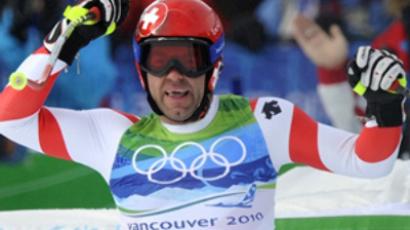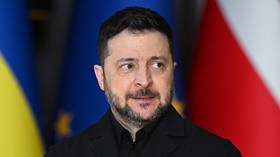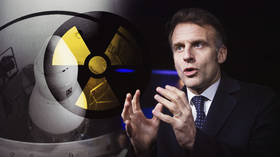Kamchatka – Russia’s remote sporting beacon
When one thinks of sport in Russia, Moscow, St. Petersburg and Kazan are the obvious heavyweight cities. Few would include Kamchatka as a hub of world-class activity. RT takes up Part 2 of its Kamchatka-in-Focus series.
Petropavlovsk-Kamchatsky – the city of St. Peter and St. Paul – had its golden age of sport last century, while still part of the Soviet Union. Back then, people came for the higher wages, excellent seafood and stories of unrivalled hospitality.
That is why this remote peninsula became the center for Soviet alpine skiing.
Lyudmila Agranovskaya uses her own famous method of teaching alpine skiing to children. She is the first female “Snow Leopard” – a title given to mountaineers who reached the summit of the Soviet Union's four 7,000-meter peaks. She has done it seven times over.
But to this day, her passion lies in helping future skiers develop their skills from a young age.
“Kamchatka turned out to be the best place for raising alpine skiers. The city has many places for higher education, as well as high schools. Basically, an athlete has all the advantages of a big city, starting from kindergarten all the way to university. They can train and return home the same day, becoming champions in the process,” explains Lyudmila.
Back in the day, when Soviet alpine skiers were far more successful than their modern-day counterparts, the Agranovsky club bred champions like Varvara Zelenskaya.
Lyudmila Agranovskaya and her daughter Olga continue to train children and develop their coaching technique.
A shortage of modern training facilities has plagued the region, stalling any new sporting achievements. But new multifunctional Sport Centers hope to make that excuse a thing of the past
“Our center is unique to Kamchatka. Professionals and amateur athletes now have a much larger choice of sports. Actually we can hold a competition at any level here from football to boxing and gymnastics,” says director of sport center Vladimir Senetov.
Keokushinkai Karate is among the most popular martial arts, after becoming widely available in Kamchatka 20 years ago.
Some who were students then are coaches now, continuing to pass their knowledge to the next generation.
One problem remains though – the region’s remoteness from the main part of Russia prevents athletes acquiring enough competition experience in comparison to other places in the country.
“We lack competition experience because it's quite hard and expensive for other clubs and federations to reach Kamchatka and vice versa. But this year we pooled together our resources along with the local sport authorities and will hold a top regional Keokushinkai event. Hopefully we'll have one every year,” says Vasily Timofeev, Team Kamchatka Keokushinkai Karate head coach.
Paralympic athletes also hope to compete more. The Russian team continues to impress on the world stage year after year. Many of them come from remote places like the Kamchatka Region.
But sometimes that is where the nations’ real treasures are hidden, like the people who devote themselves to helping improve the lives of others.
Natalya Reviakina has been a Paralympic coach since 1996 and has witnessed many changes. What remains constant, though, is her desire to come here every day and push her students to achieve the best results they can.
“Government attention to the Paralympic athletes has increased since I first started. I believe it's just one of the reasons Russia's Paralympians are one of the best teams. And I also do my best so that there will be more champions from Kamchatka,” notes Natalya.













